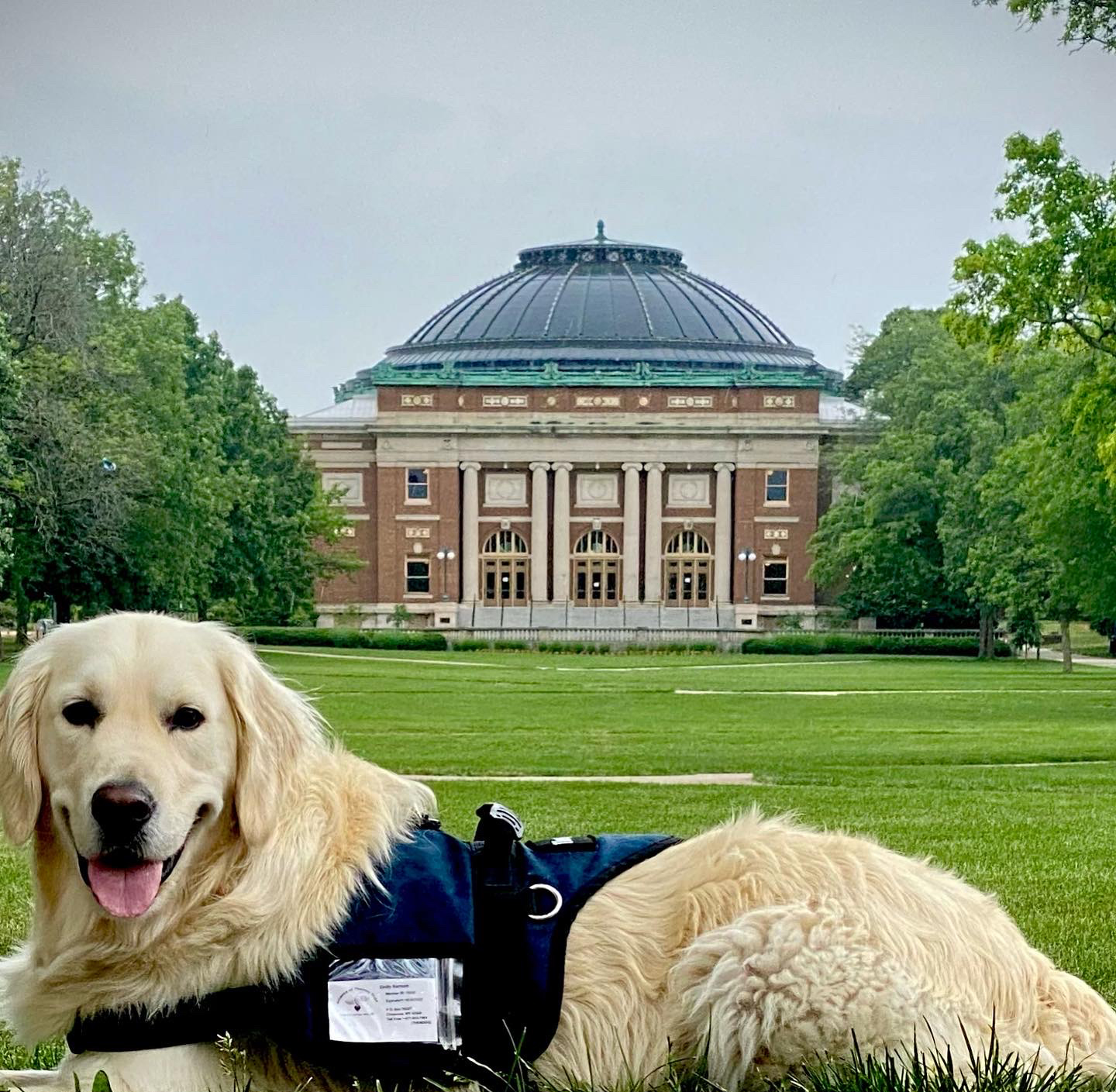The Counseling Center at the University of Illinois began its Therapy Dog Program in August 2021. The goal of the Therapy Dog program is to provide comfort and support to the students at the University of Illinois through therapy, outreach, and prevention services.
Frequently Asked Questions
What is a therapy dog?
A therapy dog is specifically trained to work with its owner/teammate to provide mental and physical health support for people other than their owner. These dogs are often used in hospitals, mental health settings or volunteer in schools or other institutions such as assisted living facilities.
In our center, our therapy dog provides mental health support to students who engage in therapy with the therapy dog’s teammate. In addition, our therapy dog often participates in Counseling Center outreach programming such as new student orientations, wellness fairs, and awareness events. Our dog also typically takes walks around campus throughout the day and interacts with students during these walks.
Is the therapy dog at the Counseling Center every day?
No. Our therapy dog is at the Counseling Center part time, typically two to three days per week. Our dog’s schedule varies week to week. As therapy dog work can be taxing for dogs, we want to ensure the mental health and well-being of our dogs as well. Therefore, on their days off our dog spends the day napping, relaxing, and spending time being a dog.
How is a therapy dog different from a service dog?
While therapy dogs are trained and certified for their work, like service dogs, therapy dogs are used to help people other than their owner/teammate. Service dogs are trained to do a specific task to help their owner. These tasks can include physical assistance, such as turning on and off light switches, detecting allergens in food, or alerting others in times of owner medical emergencies (e.g., seizures, etc.)
How is a therapy dog different from an emotional support animal?
Therapy dogs provide mental and physical health support to people other than their owner. They are also trained and certified. As opposed to this, Emotional Support Animals don’t require any formal training or certification, but rather are designated ESAs because they provide emotional support to their owners for a specific mental health diagnosis or disability.
Can I request to meet with the therapy dog?
Unfortunately, we cannot take requests to have our therapy dog at outreaches due to his limited schedule. However, student will often see him around campus at some of our Counseling Center outreach events throughout the semester.
When is the therapy dog going to be at events?
If you are interested in what our therapy dog is doing, please follow us on social media! We are on YouTube, Facebook, Instagram, Twitter, and Tik Tok!
